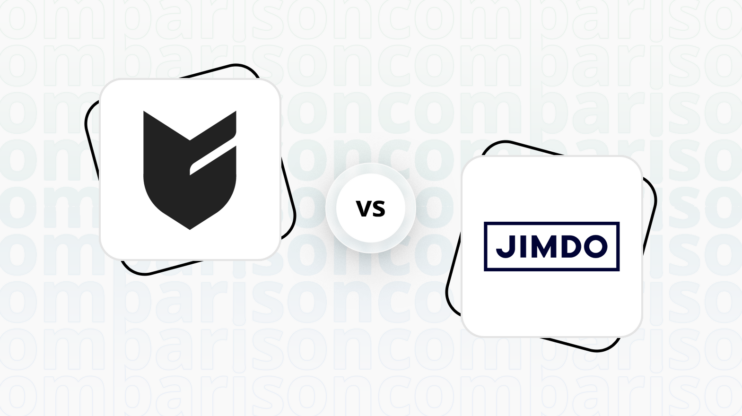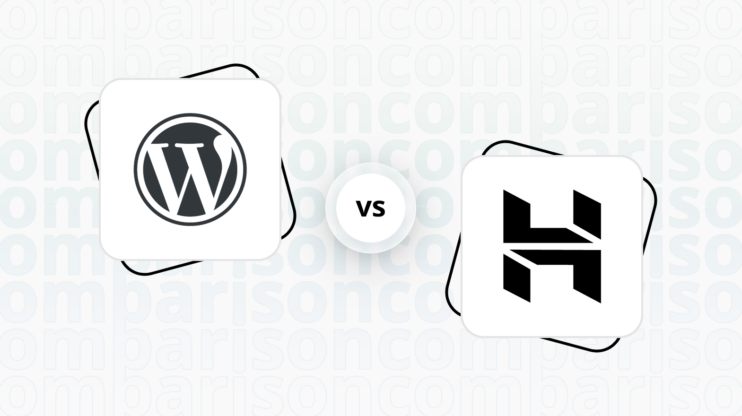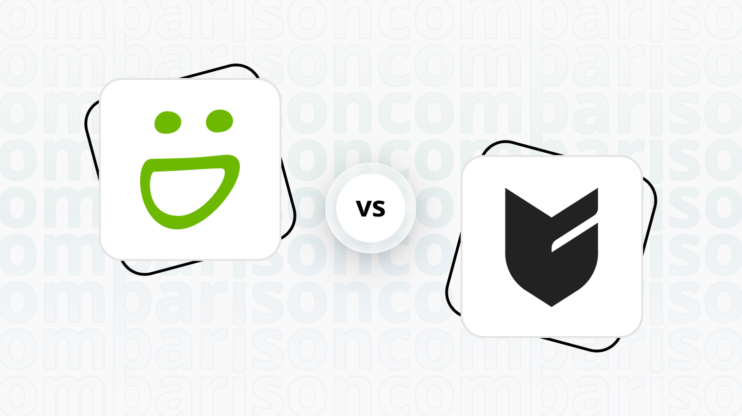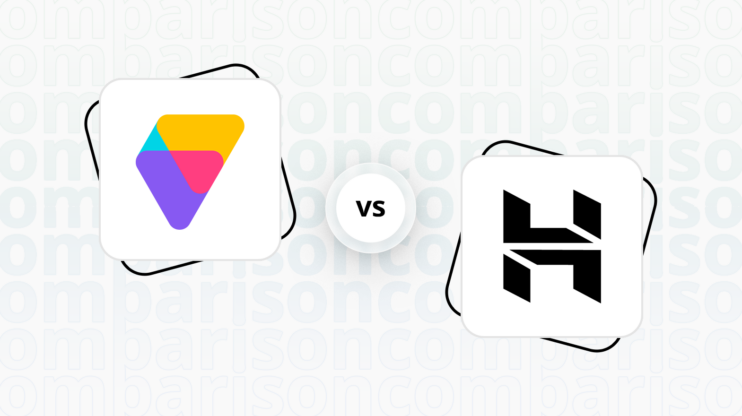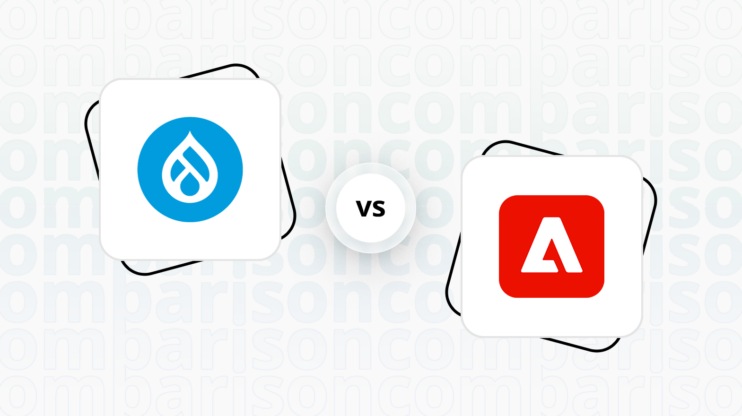Final verdict
WordPress and Dreamhost both offer robust platforms, but they cater to different user needs and preferences.
-
WordPress (Overall Grade: 7.1/10)
is an open-source CMS that excels in customization and flexibility. It is ideal for users who want extensive control over their website’s design and functionality. With a vast array of plugins and themes, WordPress is suitable for blogs, business sites, and online stores. When comparing WordPress vs Dreamhost, WordPress stands out for its powerful ecommerce capabilities through plugins like WooCommerce and its extensive learning resources. -
Dreamhost (Overall Grade: 6.7/10)
offers a user-friendly website builder with integrated hosting solutions. It is perfect for users who prefer a simpler, more straightforward approach to website creation. Dreamhost’s platform, Remixer, provides a variety of customizable themes and a drag-and-drop interface, making it accessible for beginners. Considering WordPress vs Dreamhost, Dreamhost is a great choice for those who prioritize ease of use and reliable customer support.

|

|
|
|---|---|---|
|
Design functionalities & templates |
9.0 |
7.6 |
|
Ease of use |
7.2 |
8.2 |
|
Ecommerce |
8.4 |
7.4 |
|
Website Editors |
8.5 |
7.3 |
|
Product testing options |
8.1 |
2.7 |
|
Price |
5.9 |
7.8 |
|
Hosting quality |
0 |
7.2 |
|
Website speed optimization |
6.5 |
3.5 |
|
Plugins and integrations |
8.8 |
8.8 |
|
Marketing features |
8.0 |
8.0 |
|
Customer support |
5.0 |
7.5 |
|
Security |
6.7 |
8.2 |
|
AI capabilities |
6.1 |
1.2 |
|
User Management |
8.8 |
8.8 |
Best for ecommerce
 8.4
8.4
 7.4
7.4
Verdict
: Dreamhost is suitable for users seeking a straightforward, integrated solution, while WordPress excels in flexibility and extensive customization through plugins.
-
WordPress
: With its open-source nature and extensive plugin ecosystem, WordPress is ideal for those who need a highly customizable ecommerce solution. Plugins like WooCommerce provide comprehensive ecommerce functionalities, making it a powerful choice for businesses of all sizes. However, when comparing WordPress vs Dreamhost, WordPress may require more technical know-how to fully leverage its capabilities. -
Dreamhost
: Dreamhost offers a user-friendly website builder with WooCommerce-ready themes, making it a great option for those who prefer a more integrated and less technical approach. While it may not offer the same level of customization as WordPress, it provides a robust and reliable platform for small to medium-sized online stores.
Best for informational & business websites
 9.2
9.2
 7.5
7.5
Verdict
: WordPress is the superior choice for informational and business websites due to its extensive customization options and robust plugin ecosystem. Dreamhost, while user-friendly and reliable, falls short in comparison to WordPress’s flexibility and depth.
-
WordPress
: Scoring 9.2, WordPress excels in providing a highly customizable platform with a vast array of themes and plugins. Its open-source nature allows for extensive creative control, making it ideal for a wide range of website types, from blogs to business sites. WordPress’s extensive learning resources and community support further enhance its appeal for users looking to build and manage their websites with ease. -
Dreamhost
: With a score of 7.5, Dreamhost offers a user-friendly website builder that is perfect for beginners. Its drag-and-drop interface and variety of themes make it easy to create professional-looking websites without coding knowledge. Dreamhost also integrates seamlessly with WordPress, providing an easy transition for users looking to leverage more advanced features. However, when comparing WordPress vs Dreamhost, WordPress’s superior customization options and plugin ecosystem make it the better choice for informational and business websites.
Detailed comparison
Design functionalities & templates
Design FunctionalitiesRepresents how well each platform allows for creative design and customization of websites.Score Components:
- Template Variety (30%): Range and quality of design templates.
- Customization (30%): Flexibility and options for design alterations.
- User Interface (20%): Ease and intuitiveness of the design process.
- Responsiveness (10%): Adaptability to different devices and screen sizes.
- Innovation (10%): Unique design features and tools.
 9.0
9.0
 7.6
7.6
🏆
Winner: WordPress.
If you’re looking for a platform that offers more creative control and a wide array of design features, WordPress is the preferred choice.
WordPress offers an extensive variety of templates and designs, catering to a wide range of website types beyond just blogs or ecommerce. Its open-source nature allows for high customization and creative freedom, appealing to diverse user needs. While WordPress itself doesn’t sell premium templates, numerous third-party theme shops offer sophisticated and specialized design choices, expanding the possibilities for users.
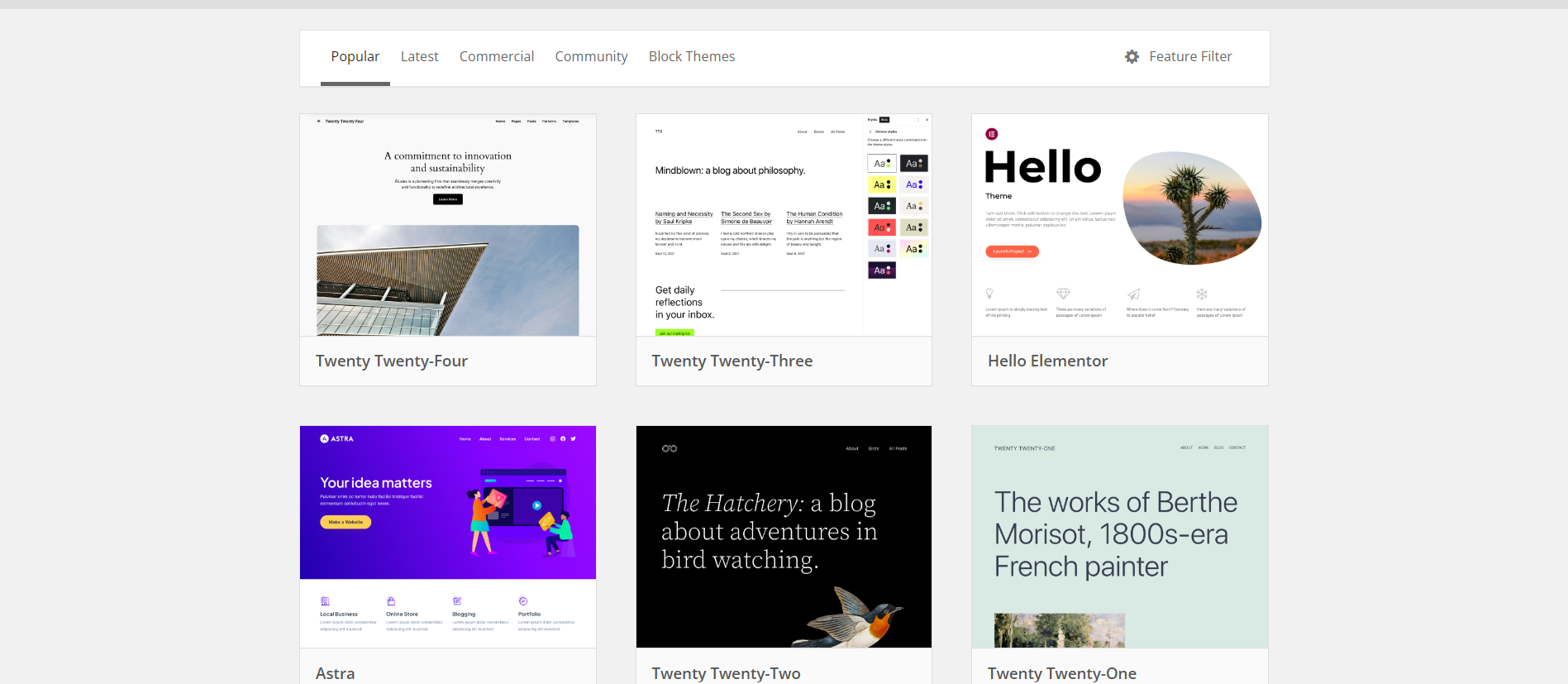

Compared to WordPress, Dreamhost’s website builder, offers a user-friendly interface that allows for a high degree of customization flexibility. Users can edit various elements including text, images, backgrounds, and layout structures to match their preferences. The platform also provides a wide range of themes and templates that can be further customized to ensure the final website aligns with the user’s brand identity. Additionally, Dreamhost supports integration with other tools and services, enhancing the functionality and adaptability of websites created with its builder.

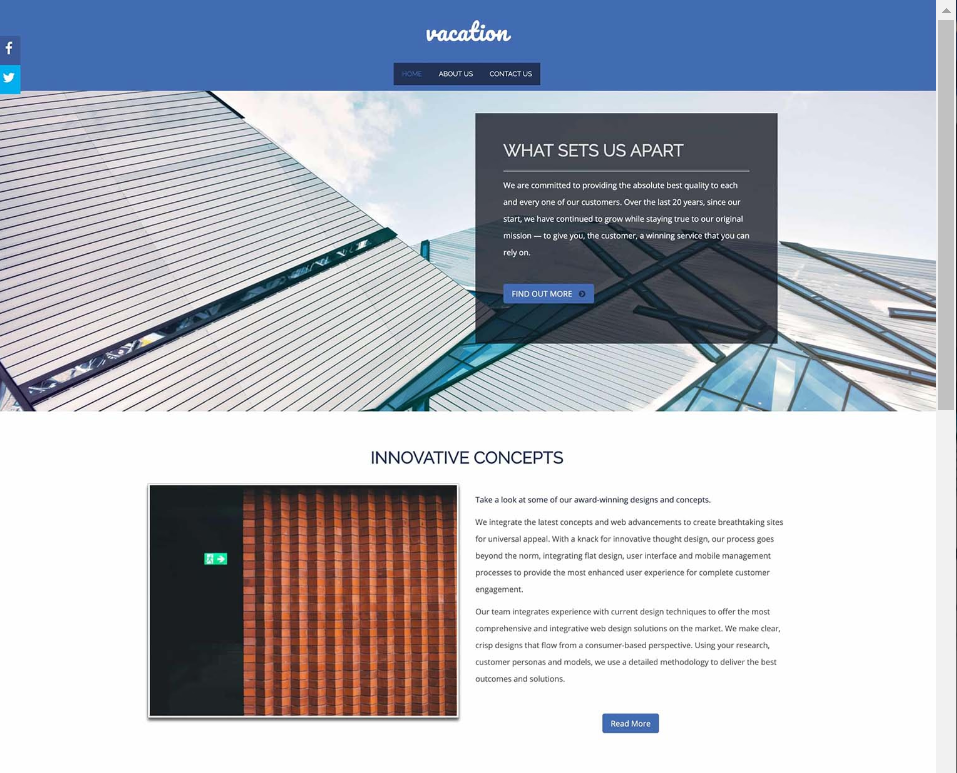
Get a head start on website creation with AI
Create a custom website tailored to your business needs 10X faster with 10Web AI Website Builder!
Ease of use
Ease of useReflects the platform’s overall user-friendliness.Score
Components:
- Learning curve (40%): Quickness and ease of getting started.
- Interface design (30%): Simplicity and intuitiveness of layout.
- User guidance (20%): Quality of tutorials and support.
- Flexibility (10%): Adaptability to various user skills.
 7.2
7.2
 8.2
8.2
🏆 Winner: Dreamhost
. With a score of 8.2, Dreamhost’s website builder is designed with simplicity in mind, making it highly accessible for users without prior web development experience. WordPress, scoring 7.2, offers great flexibility and power, but it can be less intuitive for beginners compared to simpler website builders. If ease of use is a priority, Dreamhost is the clear winner in this category.
Learning Resources
🏆 Winner: WordPress
. While both platforms offer solid learning resources, WordPress goes a step further with its vast array of learning resources, known for both their availability and quality. These include detailed documentation, community forums, online tutorials, and courses offered by both WordPress and third-party providers.
For ecommerce
EcommerceMeasures the platform’s effectiveness in supporting online business activities.Score Components:
- Ecommerce themes and templates (20%): Variety and design of templates.
- Product management (25%): Ease of managing and organizing products.
- Payment options (25%): Variety and convenience of payment methods.
- Ecommerce features (20%): Features for managing an ecommerce store.
- Integration (10%): Compatibility with external e-commerce tools and services.
 8.4
8.4
 7.4
7.4
When it comes to ecommerce, both WordPress and Dreamhost offer robust solutions. WordPress, while lacking built-in ecommerce, provides plugins like WooCommerce that offer a comprehensive solution for online stores. On the other hand, Dreamhost’s Website Builder is a versatile platform for building ecommerce sites, offering over 200 themes, drag-and-drop customization, and WooCommerce-ready features for online stores.

|

|
|
|---|---|---|
|
Ecommerce themes and templates |
9.2 |
7.0 |
|
Product page customization |
9.0 |
7.8 |
|
Payment processing and commissions |
7.5 |
7.5 |
|
POS capabilities |
6.5 |
7.0 |
|
Payment gateways |
8.5 |
7.7 |
|
Product numbers |
7.0 |
6.5 |
|
Additional ecommerce features |
8.0 |
7.2 |
WordPress ecommerce features:
- WooCommerce Integration
- Multiple Payment Gateway Support
- Abandoned Cart Recovery
- Ecommerce Analytics
- SEO Optimization Tools
- Extensive Plugin Ecosystem
Dreamhost ecommerce features:
- WooCommerce-Ready Themes
- Magento integration
- Shopify integration
Ecommerce themes & templates
WordPress offers hundreds to potentially thousands of ecommerce and WooCommerce specific themes and templates, both free and premium. DreamHost facilitates eCommerce site creation mainly through WooCommerce, offering a powerful, open-source platform with plans designed to cater to varying levels of eCommerce activity. Additionally, DreamHost’s WP Website Builder, equipped with BoldGrid, provides a range of mobile-friendly themes for easy site customization without coding knowledge.
Product page customization
WooCommerce on WordPress offers extensive customization for eCommerce product pages, balancing plugins, page builders, and custom coding. Essential elements include quality product images, detailed descriptions, and effective add-to-cart buttons. Advanced features like product tabs, upsells, and related products are customizable. Tools like Elementor and the Ultimate Product Catalog plugin enhance functionality, but heavy plugin use may affect site performance.
Through the integration of WooCommerce, DreamHost’s website builder offers a range of customization possibilities for e-commerce product pages to enhance the shopping experience. These possibilities include layout adjustments like modifying the single product page layout and adding custom tabs, introducing custom fields and sections for additional product information and FAQs, implementing dynamic content like personalized recommendations, and enabling product variations with swatches and custom product builders.
Payment processing
When it comes to payment processing, WordPress doesn’t handle payments directly but offers plugin options for payment processing. Popular gateways include PayPal, Stripe, Authorize.Net, and Square. Choose a gateway based on transaction volume, currencies, fees, and security. Plugins integrate gateways with WooCommerce for a user-friendly setup. Consider options for recurring payments, offline payments, and fraud prevention. Research, read reviews, and start small, scaling as needed.
DreamHost supports a variety of popular payment gateways like PayPal, Stripe, Authorize.Net, Amazon Pay, and Square, each with its own fee structure but no additional charges from DreamHost. These gateways offer features like POS capabilities, fraud detection, and international currency support, making DreamHost a versatile choice for website builders focusing on WordPress integration.
Website Editors
Website EditorsEvaluates the platforms’ website building and editing capabilities.Score Components:
- Customization tools (40%): Range and power of editing features.
- Editor usability (30%): User experience within the editor.
- Design flexibility (20%): Freedom in layout and design changes.
- Update and maintenance ease (10%): Simplicity of updating and maintaining the site.
 8.5
8.5
 7.3
7.3
🏆
Winner: WordPress
. WordPress, with a score of 8.5, offers a user-friendly interface with block-based editing, extensive styles customization, template management, page editing/creation, distraction-free modes, versatile saving options, and accessibility for users of varying skill levels. It provides a WYSIWYG (What You See Is What You Get) interface, with a Design panel on the left and a live preview on the right. You can edit styles, manage templates and pages, and use various blocks for customization. Changes can be applied globally, including Header and Footer templates. The editor also offers features like undo/redo, List View, Command Palette, and customization tools.
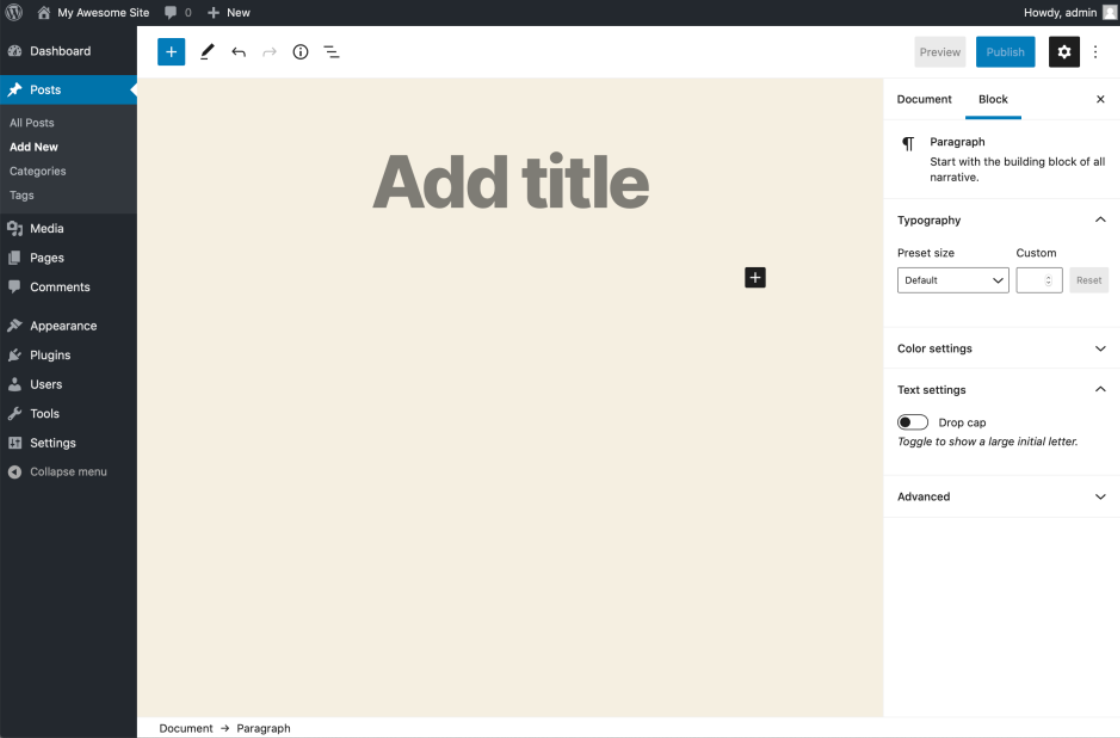
Dreamhost’s website builder, scoring 7.3, utilizes BoldGrid, providing a user-friendly interface for creating and customizing WordPress websites, employing a drag-and-drop editor that eliminates the need for coding skills. It offers a selection of mobile-friendly themes to accommodate various website needs, along with essential tools like backups to safeguard user data. The builder streamlines the website creation process, from theme selection and layout customization to the final installation, enabling users to easily adjust their site’s appearance and functionality.
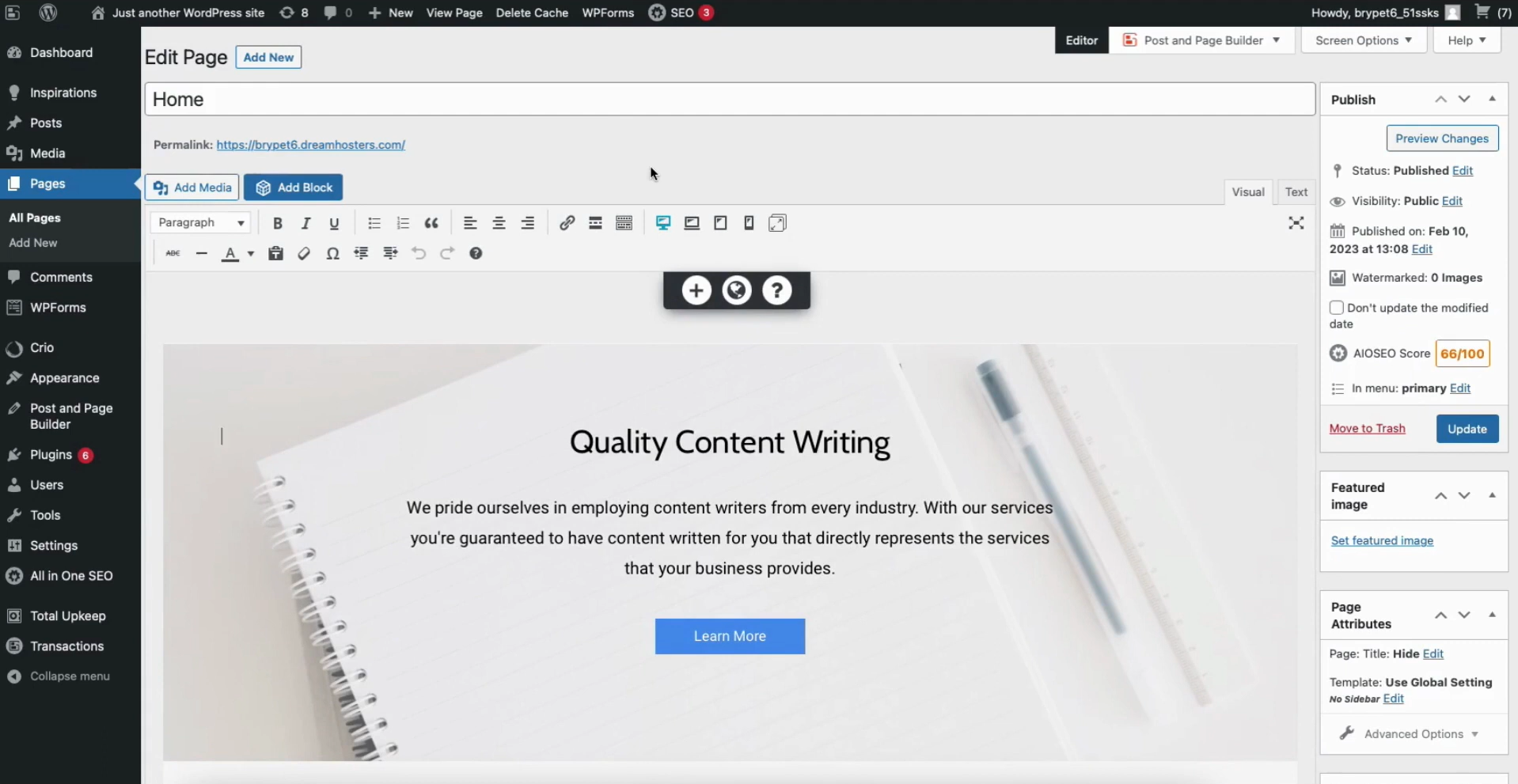
Mobile editor/app
 8.1
8.1
 5.5
5.5
🏆
Winner: WordPress
. Both WordPress and Dreamhost offer mobile editing capabilities, but they cater to different needs and skill levels. WordPress has a dedicated mobile app that allows users to manage their website on the go, including creating and editing posts, managing comments, scheduling content, and analyzing website traffic. However, it has some limitations compared to the web-based editor, including fewer advanced options, restricted code access, and limited design customization.
Dreamhost, on the other hand, does not have a dedicated mobile editor app. Users can modify their website using a mobile browser, but this comes with certain restrictions.
In summary, WordPress receives a higher rating due to its dedicated mobile app and the range of features it offers, while Dreamhost’s mobile editing capabilities are more limited.
Product testing options
Product Testing OptionsAssesses the options for trying out platform features before commitment.Score Components:
- Trial quality (40%): Extent and usefulness of the trial or free version.
- Feature accessibility (30%): How many features are available to test.
- Trial duration (20%): Length of the trial period.
- Ease of transition (10%): Smoothness of moving from trial to paid plans.
 8.1
8.1
 2.7
2.7
Overall Result
:
WordPress wins
. WordPress scores 8.1, while Dreamhost scores 2.7 in product testing options. WordPress, being an open-source CMS, is free to use and doesn’t require a trial version or the possibility to test premium features. On the other hand, Dreamhost doesn’t offer a free or trial version, but it allows testing of premium features during the 30-day refundable period and offers a 30-day money-back guarantee.

|

|
|
|---|---|---|
|
Free Plan |
Yes (open source software) |
No |
|
Trial Duration |
No | No |
|
Testing Premium Features |
No |
Yes, during the 30-day refundable period |
Price
PriceLooks at the cost-effectiveness and value for money of each platform.Score Components:
- Plan value (40%): What each pricing tier offers.
- Transparency and clarity (30%): Clearness of pricing structures.
- Flexibility of plans (20%): Range of options to suit different budgets.
- Hidden costs (10%): Additional expenses not included in the plan.
 5.9
5.9
 7.8
7.8
Dreamhost offers a range of pricing plans with discounts on annual billing, while WordPress is a free open-source software, but requires separate purchases for domain, hosting, and website builder subscriptions.

|

|
|
|---|---|---|
|
Free |
Free Plan ($0/month): WordPress is open source software that is free. WordPress does not provide hosting services; so, it is necessary to purchase a domain, web hosting, and website builder subscriptions separately. While WordPress lacks built-in ecommerce, plugins like WooCommerce offer a solution. WordPress offers an extensive variety of templates and designs. WordPress lacks a built-in AI-assisted builder, but its open-source nature allows for an ecosystem of plugins and themes incorporating AI for website building. |
No offering at this amount. |
|
$0-$10 |
No offering at this amount. |
Shared Starter ($7.99/month): Shared Hosting with unmetered bandwidth but low SSD storage, Free SSL certificate, automated daily backups. This plan allows to manage only 1 website and there is no limitation of number of pages offered. Value for price: 6.5 |
|
$10-$20 |
No offering at this amount. |
Shared Unlimited ($13.99/month): Shared Hosting with unlimited websites, unmetered bandwidth, but low SSD storage, pre-installed Free SSL certificate, automated daily backups. Value for price: 7.5 |
|
$20-$30 |
No offering at this amount. |
DreamPress ($23.99/month): Isolated Cloud hosting with unmetered bandwidth, 30GB SSD storage, staging website, fast NGINX pre-installed Free SSL certificate, Free WordPress migrations, automated daily backups and on-demand 1-click restore, specialized WordPress support. This plan allows to manage only 1 website and there is no limitation of number of pages offered. Value for price: 8.0 |
|
$30-$40 |
No offering at this amount. |
DreamPress Plus ($34.99/month): Isolated Cloud hosting with unmetered bandwidth, 60GB SSD storage, staging website, unlimited CDN, fast NGINX pre-installed Free SSL certificate, Free WordPress migrations, automated daily backups and on-demand 1-click restore, specialized WordPress support, 3-phone support callbacks. This plan allows to manage only 1 website and there is no limitation of number of pages offered. Value for price: 8.5 |
|
$80+ |
No offering at this amount. |
DreamPress Pro ($89.99/month): Isolated Cloud hosting with unmetered bandwidth, 120GB SSD storage, staging website, unlimited CDN, fast NGINX pre-installed Free SSL certificate, Free WordPress migrations, automated daily backups and on-demand 1-click restore, specialized WordPress support, 5-phone support callbacks and priority support. This plan allows to manage only 1 website and there is no limitation of number of pages offered. Value for Price: 9.0 |
location. As a result in rare cases the prices displayed here can differ from the ones you see on their
websites.
Hosting quality
Hosting
qualityExamines the reliability and performance of the hosting solutions.Score Components:
- Uptime (40%): Consistency and reliability of website availability.
- Speed (30%): Loading times and performance.
- Bandwidth and storage (20%): Sufficiency of resources provided.
- Data centers (10%): Quality and distribution of hosting infrastructure.
 0
0
 7.2
7.2
Winner: Dreamhost
. Dreamhost offers hosting included in all their plans, with a 99.93% uptime and a 100% uptime guarantee. They also have two data centers in the US. On the other hand, WordPress does not directly provide hosting services, so its hosting quality is dependent on the chosen hosting provider.

|

|
|
|---|---|---|
|
Do they offer hosting? |
No, WordPress itself does not directly provide hosting services. |
Yes, included in all their plans, shared or cloud hosting depending on the plan, with automated daily backups. |
|
Data Centers: |
Data centers depend on hosting providers |
2 data centers in US: Ashburn, Virginia and Hillsboro, Oregon |
|
Type of hosting: |
WordPress itself isn’t a hosting platform, there are various options when choosing the type of hosting for websites built with WordPress, such as: Shared Hosting, VPS Hosting, Dedicated Server Hosting, Managed WordPress Hosting, Cloud Hosting |
Shared Hosting, Cloud Hosting |
|
Uptime: |
Uptime & uptime guarantee depends on hosting provider. |
99.93% |
|
Uptime Guarantee: |
Depends on hosting provider. |
Yes, 100% |
Website Speed Optimization
Website Speed OptimizationEvaluates optimization of website loading timesScore Components:
- PageSpeed Score (30%): Google’s score indicating performance optimization.
- Loading Time (30%): The average time until a website is fully interactive.
- Mobile Optimization (15%): Optimization effectiveness for mobile devices.
- Resource Optimization (15%): Optimizing images, scripts, and other heavy resources.
- CDN Usage (10%): Use of CDN to enhance speed across geolocations.
 6.5
6.5
 3.5
3.5
🏆 Winner: WordPress
Both WordPress and Dreamhost place a high priority on website performance and page speed, with WordPress providing valuable resources for enhancing website’s Core Web Vitals and Dreamhost offering built-in caching on higher plans, code minification, and image optimization. However, WordPress gets the edge when it comes to website speed optimization.

|

|
|
|---|---|---|
|
Focus |
Core Web Vitals, WP Rocket, Hummingbird |
Built-in Caching, Code minification, Image optimization |
|
Performance Tools |
Google Lighthouse, PageSpeed Insights |
Google PageSpeed Insights Integration |
|
Key Strategies |
No specific strategy, but provides numerous learning resources for optimization |
Built-in Caching on higher plans, Code minification, Image optimization |
|
Load Times |
Varies widely, dependent on optimization |
1.75-3 seconds average |
|
Page Speed Scores Range |
Scores vary; influenced by apps, images |
No data available |
|
Core Web Vitals Improvement |
Provides valuable resources for enhancing CWV |
Does not disclose any information on their CWV improvements |
WordPress, an open-source content management system, does not have a specific strategy for website speed optimization. However, it provides numerous learning resources about how to optimize your website. It offers tools like Core Web Vitals, WP Rocket, Hummingbird, and suggests using AMP for mobile speed. The load times and PageSpeed scores vary widely, depending on optimization.
On the other hand, Dreamhost, a website builder and hosting platform, offers built-in caching on higher plans, code minification, and image optimization as strategies for speed optimization. The average load times range from 1.75 to 3 seconds. However, no data is available for PageSpeed scores. Dreamhost does not disclose any information on their Core Web Vitals improvements.
Get a head start on website creation with AI
Create a custom website tailored to your business needs 10X faster with 10Web AI Website Builder!
Plugins and integrations
Plugins and integrationsMeasures the range and effectiveness of additional plugins and integrations.Score Components:
- Variety of options (40%): Range of available add-ons.
- Integration smoothness (30%): Ease of integrating plugins into the site.
- Quality of plugins (20%): Functionality and reliability of the options.
- Custom integration capabilities (10%): Support for custom or third-party integrations.
 8.8
8.8
 8.8
8.8
🏁 It’s a tie! Both WordPress and Dreamhost score 8.8 in plugins and integrations.
WordPress, with its open-source nature, offers over 60,000 free plugins, extending functionalities across various domains like SEO optimization, ecommerce tools, social media integration, and more. On the other hand, Dreamhost, while primarily a hosting platform, supports a wide range of WordPress plugins, enhancing functionalities in areas like SEO, ecommerce, security, and performance optimization.
While both platforms offer extensive plugin options, the choice between the two would depend on the specific needs of the user. WordPress might be more suitable for those who prefer a wide range of free plugins, while Dreamhost could be a better choice for those who want a robust hosting solution with the flexibility to utilize WordPress plugins.
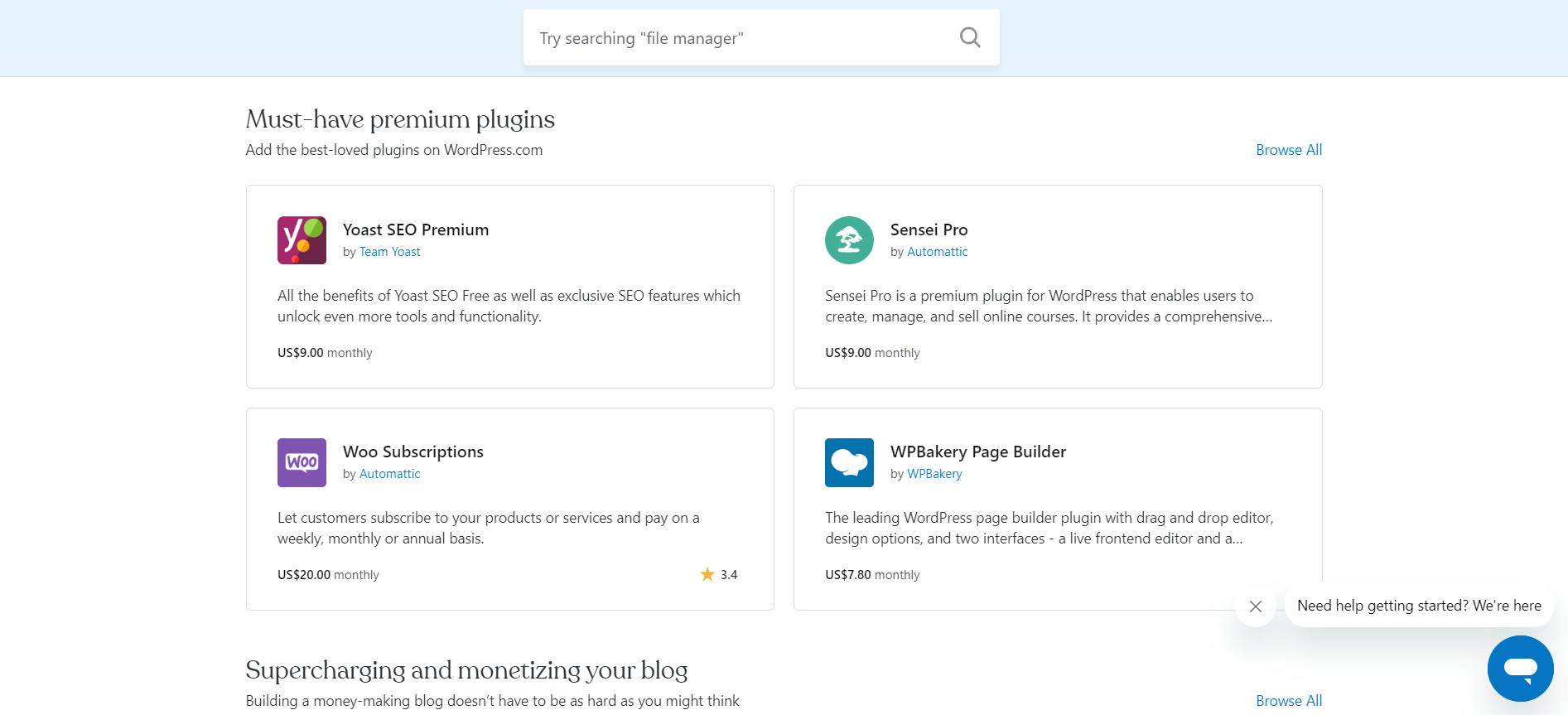
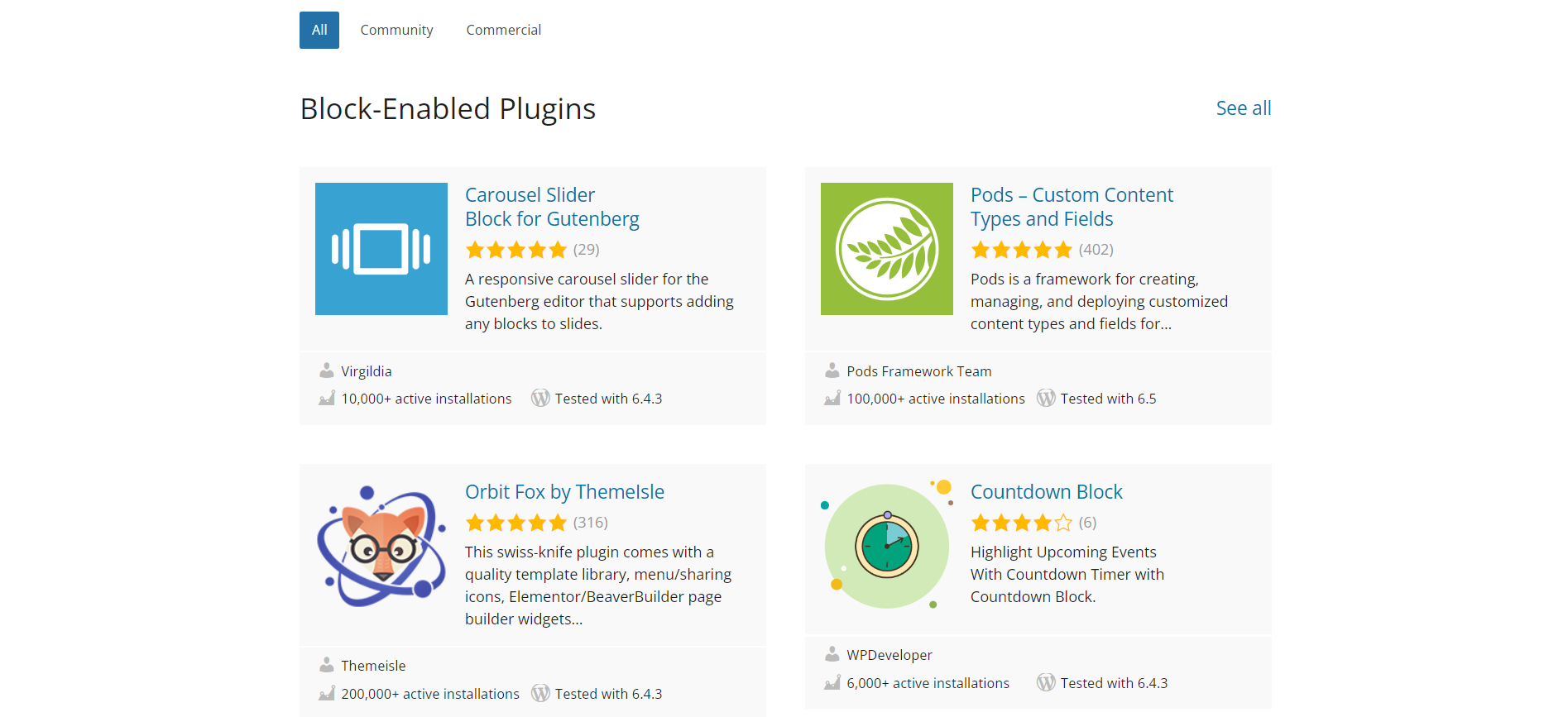
Marketing Features
Design FunctionalitiesRepresents how well each platform allows for creative design and customization of websites.Score Components:
- Template Variety (30%): Range and quality of design templates.
- Customization (30%): Flexibility and options for design alterations.
- User Interface (20%): Ease and intuitiveness of the design process.
- Responsiveness (10%): Adaptability to different devices and screen sizes.
- Innovation (10%): Unique design features and tools.
 8.0
8.0
 8.0
8.0
🏆
Overall Winner: Tie
. Both WordPress and Dreamhost offer a comprehensive set of marketing features, including SEO tools, email marketing, blogging, social media integration, analytics and reporting, and ads and promotions. However, the implementation of these features varies between the two platforms. WordPress relies heavily on plugins, while Dreamhost offers more built-in features and integrations.

|

|
|
|---|---|---|
|
SEO Tools |
|
|
|
Email Marketing |
|
|
|
Blogging |
|
|
|
Social Media Integration |
Plugins for direct linking, automatic posting, and social feeds display |
Yes |
|
Analytics and Reporting |
In-depth analysis via plugins like Google Analytics for WordPress |
Yes, through Google Analytics integration |
|
Ads and Promotions |
Support for Google Ads and ad management through various plugins |
Yes, through integration of third-party plugins |
Customer Support
Customer supportEvaluates the quality and availability of support options.Score Components:
- Response time (40%): Speed of support responses.
- Support quality (30%): Effectiveness and helpfulness of the support.
- Availability (20%): Range of support channels (phone, chat, email).
- Resource richness (10%): Quality of self-help and educational materials.
 5.0
5.0
 7.5
7.5
🏆 Winner: Dreamhost
. In the comparison of WordPress vs Dreamhost, Dreamhost takes the lead with a customer support score of 7.5. Dreamhost offers 24/7 live chat and email support, ensuring users receive timely assistance. Their support team is known for quick response times, typically within one to two hours for emails, and minimal wait times for live chat. Additionally, phone support callbacks are available depending on the user’s plan.
WordPress, on the other hand, has a customer support score of 5.0. As an open-source CMS, WordPress does not provide direct customer support. Users rely on community forums, the WordPress codex, and support from hosting providers or plugin and theme developers. While these resources can be helpful, they may not offer the immediate assistance that some users require, especially those new to website building.
Security
SecurityLooks at the platforms’ security measures and data protection.Score Components:
- Data protection (40%): Safeguards for user and customer data.
- SSL and encryption (30%): Implementation of secure connections.
- Compliance (20%): Adherence to industry security standards.
- Regular updates (10%): Frequency of security updates and patches.
 6.7
6.7
 8.2
8.2
🏆
Winner: Dreamhost
. Dreamhost provides comprehensive security measures for hosted websites, including free SSL certificates, domain privacy, multi-factor authentication, anti-spam filters, daily backups, and DDoS protection. They also offer advanced security features such as DreamShield for malware removal and mod_security and lua-resty-waf as web application firewalls. Despite robust security protocols, Dreamhost has experienced breaches, highlighting the importance of continuous vigilance and the implementation of personal security practices alongside provider measures.
On the other hand, WordPress provides numerous functionalities and resources to enhance website security effectively. You can utilize multiple plugins to bolster security, such as those for site backups, monitoring, malware scanning, user activity tracking, permission control, and spam protection tools. However, its approach to private data storage and protection can vary depending on the hosting provider.
AI Capabilities
AI capabilitiesMeasures the effectiveness of AI-driven features and tools.Score Components:
- Automation efficiency (40%): Impact of AI on streamlining processes.
- Personalization (30%): AI-driven customization for users or customers.
- AI-Assisted design (20%): Role of AI in website design and functionality.
- Data analysis (10%): Use of AI in interpreting user data and analytics.
 6.1
6.1
 1.2
1.2

|

|
|
|---|---|---|
|
AI Builder |
AI Site Builder and Zita plugins |
|
|
AI Ecommerce features |
Conversios, Ochatbot, AI Power, GetGenie plugins |
|
|
AI content generation |
AI Engine, GetGenie plugins |
AI business name generator |
|
Additional AI features |
Wide range of AI powered plugins |
|
🏆 Winner: WordPress
. With a score of 6.1, WordPress, thanks to its open-source nature, allows for integration with a variety of AI plugins, enhancing its capabilities in ecommerce, content generation, and other areas. This makes it a more versatile choice for users looking for AI capabilities in their website builder.
Dreamhost, scoring only 1.2, lacks built-in AI capabilities, but offers an AI business name generator. This feature can be useful for users in the initial stages of setting up their business, but overall, Dreamhost’s AI capabilities are limited compared to WordPress.
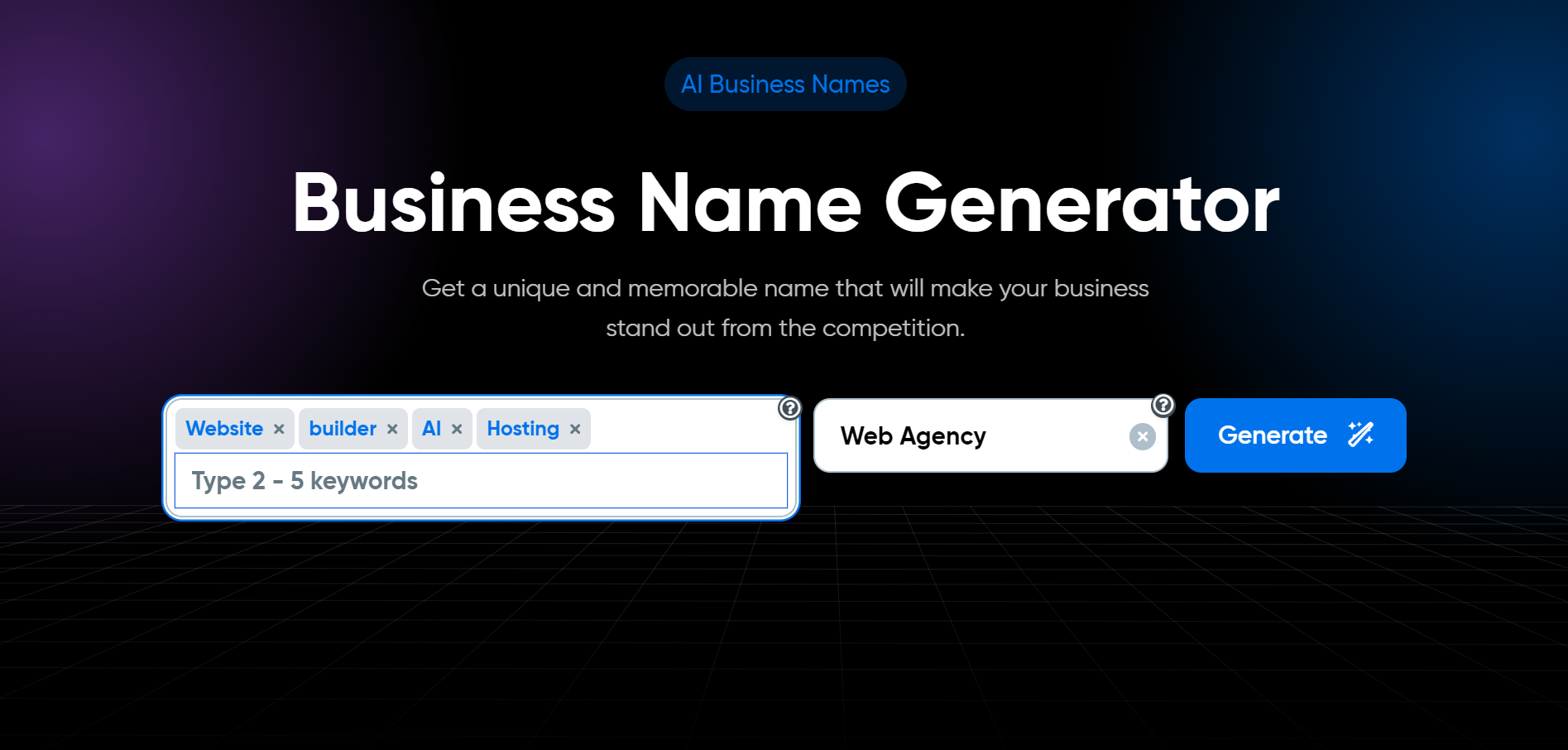
User Management
User ManagementAssesses the platforms’ capabilities in managing user roles, permissions, and accessibility.Score Components:
- Role Customization (40%): Flexibility in creating and defining user roles and
permissions. - Ease of Management (30%): User interface and tools for managing users.
- Access Control (20%): Effectiveness of access control measures for different user
levels. - Scalability (10%): Ability to manage a growing number of users efficiently.
 8.8
8.8
 8.8
8.8
🏆 Winner: Tie
. Both WordPress and Dreamhost offer robust user management capabilities, with a score of 8.8 each.
- WordPress provides user roles ranging from Super Admin to Subscriber, each with its own set of permissions. Additional controls such as role management plugins and revision control offer further customization for specific editing rights and collaboration.
- Dreamhost, which primarily uses WordPress for its website builder, also allows for multiple users to edit a website. It supports various roles such as Administrator, Editor, Author, Contributor, and Subscriber, each with its own set of permissions and capabilities.
WordPress User Roles and Access Levels:
| Role | Description | Access Highlights |
|---|---|---|
| Super Admin | Manages the entire network in WordPress Multisite. | Network admin, manage sites, users, plugins, themes. |
| Administrator | Full access within a single site. | Manage plugins, themes, users, all posts/pages. |
| Editor | Manages and publishes content, including others’ posts. | Edit/publish all posts, manage comments, categories. |
| Author | Publishes and manages their own posts. | Write, edit, publish own posts, upload files. |
| Contributor | Writes and edits their own posts but cannot publish. | Write, edit own posts (no file uploads or publishing). |
Dreamhost User Roles and Access Levels:
| Role | Description | Access Highlights |
|---|---|---|
| Administrator | Users with full access to all administration features, including Elementor settings. | Can edit all content, Access to Elementor settings, Can install plugins and themes, Can manage users |
| Editor | Users who can manage and publish content including pages and posts. | Can edit pages/posts created with Elementor, Cannot access Elementor settings, Can manage categories, tags, and links, Can moderate comments |
| Author | Users who can publish and manage their own posts. | Can create posts with Elementor, Cannot edit pages, Limited access to media library, Cannot access Elementor settings |
| Contributor | Users who can write and manage their own posts but cannot publish them. | Can create content with Elementor, Cannot publish or edit pages, No access to Elementor settings, Submissions require review by higher-level roles |
Additional Features

|

|
|
|---|---|---|
|
SSL Certificate |
|
|
|
Custom Domain |
|
|
|
Free Custom Domain Included |
|
|
|
International Domains |
|
|
|
Mobile Responsive |
|
|
|
Page Speed |
|
|
|
Website Builder Mobile App |
|
|
|
Convert a Website To An App |
|
|
|
Website Analytics |
|
|
|
Multilingual Sites |
|
|
|
Multiple Users |
|
|
User Feedback
WordPress receives praise for its user-friendliness, cost-effectiveness, extensive themes and plugins, customization options, and supportive community. However, users mention technical challenges, security concerns, a learning curve, and a lack of direct support. Overall, it remains a widely used and versatile platform, especially beneficial for startups and small businesses.
Users appreciate DreamHost WP Website Builder for its ease of use, broad template selection, and integrated hosting solutions, highlighting its utility in building and managing websites efficiently. However, some users suggest improvements in areas such as image editing capabilities, customer support, and software optimization to enhance speed and functionality. While many find it a cost-effective and user-friendly option for website development without coding, others express concerns over occasional software bugs, slow website performance, and the desire for more advanced features.
The making of this blog
We followed a clear, step-by-step process to write and research this article.
FAQ
Which platform is better for beginners, WordPress or Dreamhost?
Can I use both WordPress and Dreamhost for ecommerce websites?
How do WordPress and Dreamhost differ in terms of customization and design flexibility?
What are the major differences in pricing and value between WordPress and Dreamhost?










